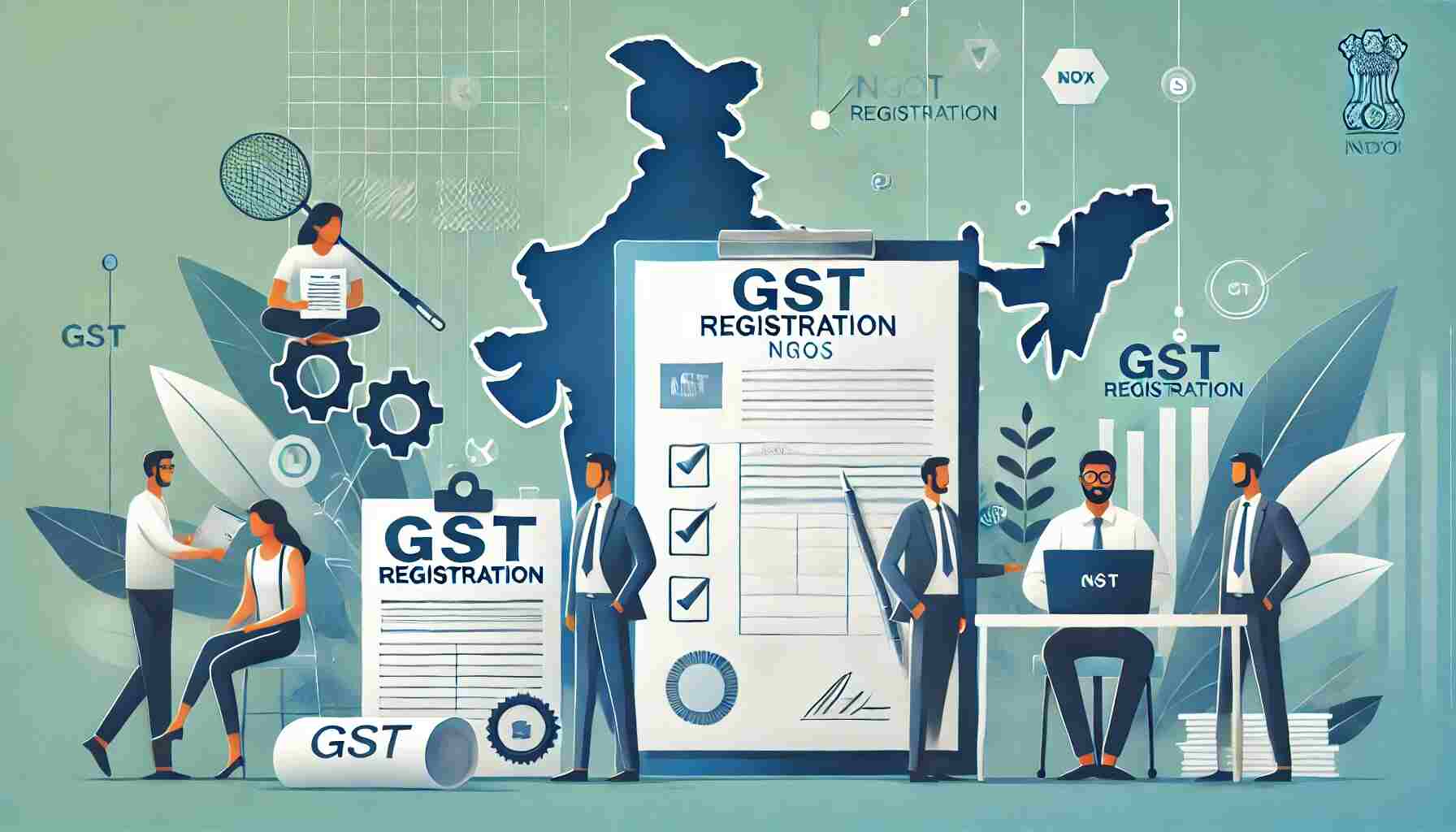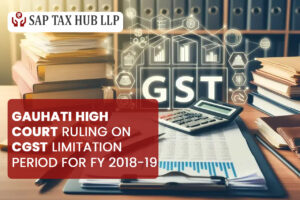Non-Governmental Organizations (NGOs) are very influential in social protection, providing programs in education, health, and community services. However, NGOs in India, like any other institutions, have tax obligations. One of the compliances that NGOs must adhere to is the registration for Goods and Services Tax (GST) which has to be done if the turnover exceeds specified threshold limits.
Most NGOs believe that they do not qualify to pay GST on account of their non-profit status. As it turns out, this is not universally correct. It is imperative to know when and how one NGO registers for GST compliances and avoids legal complications and penalties. In case you need assistance, GST Registration Consultant in Delhi are always available to help with this issue.
What is GST and why should an NGO bother about it?
Goods and Services Tax or GST is a common indirect tax system introduced in India whereby multiple indirect taxes are integrated into a single tax. It is applicable on all businesses and other entities engaged in the supply of goods and services. While NGOs are not commercial businesses, they can be subjected to GST at some point.
When is it Mandatory for an non-government agency to Register for GST?
The requirement to register for GST may differ across other NGOs. However, registration is compulsory for NGOs in the following scenarios:
1. Annual Revenue Surpassing Threshold Limits
In the case of NGOs, GST registration is compulsory once the total sum of all supply-related taxable activities exceeds Rs. 20 lakhs (in the case of service providers) or Rs. 40 lakhs (in the case of goods suppliers) in the span of a financial year.
For special category states, the applicable limit is Rs. 10 lakhs.
2. Inter-state Trade of Goods and Services
Irrespective of revenue generated, if an NGO deals in the provision of a service or trade of goods across different states, GST registration is a requirement.
3. Accepting Grants or Donations with Conditions
If an NGO accepts grants or donations that require them to provide services or goods in exchange, these transactions may constitute as ‘supplying’ under GST, therefore making it mandatory.
4. Providing Taxable Services
For an NGO that renders services such as consultancy or organizes training sessions for a charge, registration under GST rules is obligatory.
5. Reverse Charge Mechanism (RCM)
In the event where an NGO is under Reverse Charge Mechanism and procures services from a vendor who is not registered, they must still register under GST and remit VAT to the vendor for these services.
- Certain activities of NGOs are exempted from tax. Some of these include:
- Charitable activities such as aid for the underprivileged, instructional activities, and medical care.
- Public health service delivery which incorporates vaccination and other forms of preventive medicine.
- Educational activities such as the establishment of schools and colleges.
- Activities that are entirely social in nature and not aimed at making profits.
- It is always best to talk to CA firms in delhi ncr to see if your NGO can qualify for these exemptions.
NGOs are provided with certain benefits with the registration of tax. Though compliance may appear to be an additional burden for NGOs, there are numerous advantages to registering for GST.
Input tax credit:
- Registered NGOs are entitled to reimbursement of Input Tax Credit on GST claimed on the purchases made for the goods and services received in their payment activities.
- GST registration increases the credibility of the NGO, which makes it easier for the organization to get government grants as well as funding from the private sector.
- An NGO with GST registration can render services throughout the country without any compliance complications.
- Numerous businesses prefer to deal with registered NGOs in relation to their CSR (Corporate Social Responsibility) activities.
How To Go About Registering For GST For Non-Governmental Organizations
In regards to non-governmental organizations seeking to register for goods and services tax, the following procedures are relevant.
1. Assemble the Necessary Documents
- You should have the following documents to complete GST registration:
- The NGO’S permanent account number (PAN) card.
- The registration certificate of the NGO which includes Trust Deed, Society Registration Certificate, or Section 8 Company Incorporation Certificate.
- Identity proof and address proof of signatory.
- Utility Bill/Tenancy/rental agreements as address proof of the NGO.
- NA Bank Account (stationery or cancelled check).
2. Make An Application Through The Portal
- Go to the GST Portal (www.gst.gov.in) and apply for new registration.
- Provide PAN, mobile number, and email ID.
- OTP verification proceeds to Part B of the application.
3. Upload The Required Documents Set and Submit Your Application
- Provide the required documents set and submit the application.
- Once the application has been submitted. So, you will receive an ARN to enable tracking of the application.
4. GSTIN Issuance, GSTIN, And The non-government facility
- After the application is evaluated and approved, the GST Identification Number (GSTIN) will be given directly.
The non-governmental organization will then be able to comply with key GST policies including return submissions.
NGOs’ adherence to GST obligations after gaining registration requires them to:
- Submit GST returns on a monthly, quarterly, or annual basis as dictated by their status.
- Record documents such as invoices, receipts, and tax payments in detail.
- Ensure payment for any GST liability is executed in-time to eliminate penalties.
Why Work With A GST Registration Consultant In New Delhi?
Compliance and consolidation of registration are multi-faceted and NGO-centric which makes it complex. Also, Non-governmental organizations can benefit from the services provided by the GST Registration Consultants in New Delhi for:
- Determining the need for GST registration.
- Completing the preparation and submission of GST returns.
- Obtaining exemptions and input tax credits.
- Managing compliance and audit processing to avert legal problems.
Final Thoughts
In some situations NGOs can benefit from taxation credits, bridging credibility gaps and working as a singular unit by GST registration. However, comprehension of compliance requirements coupled with the applicability of GST Registration Consultant in Delhi. Non-governmental organizations wanting to benefit from hassle free registration and compliance coupled with minimal errors should consider CA Firm in Delhi NCR.
If your NGO is planning to register for GST or requires tax compliance guidance, it is best to work with a consultant who would allow you to focus on your primary objective while ensuring that you remain compliant with the law. Reach out to professionals today and simplify your GST registration so you can carry out your business without worries!




